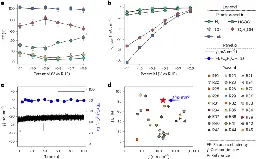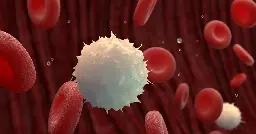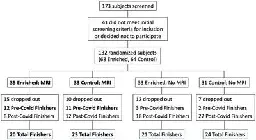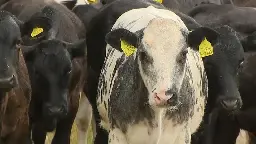The Ugandan military playing security guards for a China-controlled oil project... I think explaining human rights over there will have to start from zero - and may have to be backed with "or else" statements - if there exists an institution in a suitable position to issue them. :o
I would add:
- if you wanted direct and low-latency access to cameras (for machine vision)
1 C more temperature -> air can hold 7% more water vapour
...but the peaks of fringe events are quite a bit taller than +1 C. Raising the average by 1 C raises the peaks considerably more.
Summary:
But then, in the geologically abrupt space of only a few decades, this great river of ice all but halted. In the two centuries since, it has moved less than 35 feet a year. According to the leading theory, the layer of water underneath it thinned, perhaps by draining into the underside of another glacier. Having lost its lubrication, the glacier slowed down and sank toward the bedrock below.
/.../
“The beauty of this idea is that you can start small,” Tulaczyk told me. “You can pick a puny glacier somewhere that doesn’t matter to global sea level.” This summer, Martin Truffer, a glaciologist at the University of Alaska at Fairbanks, will travel to the Juneau Icefield in Alaska to look for a small slab of ice that could be used in a pilot test. If it stops moving, Tulaczyk told me he wants to try to secure permission from Greenland’s Inuit political leaders to drain a larger glacier; he has his eye on one at the country’s northeastern edge, which discharges five gigatons of ice into the Arctic Ocean every year. Only if that worked would he move on to pilots in Antarctica.
It's not wild at all. :) The plan makes sense from a physical perspective, but should not be implemented lightly because:
- it's extremely hard work and extremely expensive to drain water from beneath an extremely large glacier
- it doesn't stop warming, it just puts a brake on ice loss / sea level rise
If the motor mount is hackable with reasonable effort, and the motor controller's interfaces are open, then in principle... yes.
Yet in reality, companies build extremely complicated cars where premature failure of multiple components can successfully sabotage the whole. :(
I've once needed to repair a Mitsubishi EV motor controller. It took 2 days to dismantle. Schematics were far beyond my skill of reading electronics, and I build model planes as an everyday hobby, so I've seen electronics. Replacement of the high voltage comparator was impossible as nobody was selling it separately. The repair shop wanted to replace the entire motor controller (5000 €). Some guy from Sweden had figured out a fix: a 50 cent resistor. But installing it and putting things back was not fun at all. It wasn't designed to be repaired.
Needless to say, replacing a headlight bulb on the same car requires removing the front plastic cover, starting from the wheel wells, undoing six bolts, taking out the front lantern, and then you can replace the bulb. I curse them. :P
But it drives. Hopefully long enough so I can get my own car built from scratch.
Thanks for the news, but also - thanks for posting a proper summary. :)
(So many videos have only the YouTube-compiled summary, which is typically totally off topic.)
Interestingly, warfare also has the effect of:
-
causing houses to be abandoned, necessitating houses elsewhere while the abandoned ones likely get bombed
-
decreasing the number of future consumers, whose future footprint would depend on future behaviour patterns (hard to predict)
-
changing future land use patterns, either due to unexploded ordnance or straight out chemical contamination (there are places in France that are still off limits to economic activity, because World War I contaminated the soil with toxic chemicals), here in Estonia there are still forests from which you don't want trees in your sawmill because they contain shrapnel and bullets from World War II
I have the feeling that calculating the climate impact of actual war is a difficult job.
But they could calculate the tonnage of spent fuel and energy, that would be easier.
Nice to hear. :) The process seems doable in a suitably equipped factory. :)
Alas, I did not have the time to watch it all.
Acting as if they were ever under attack by this video is mansplaining an best and strawmanning at worst.
Those are quite closely related branches of research. If you deal with one, you're almost certainly also involved with another, so much that teaching them on the same course makes sense. Human psychology is considerably more complex than animal psychology, but built of the same blocks - and both humans and animals can, to different degrees, be rational agents in natural or artificial games, where their choice of strategy depends on their psychological profile.
Please show the scientific process went in establishing that mistrust of strangers is a genetically evolved trait.
Here are some articles on the subject. The deepest-drilling article is not about humans, but dogs.
"Genetic mapping of canine fear and aggression"
We conducted genomewide association (GWA) mapping of breed stereotypes for many fear and aggression traits across several hundred dogs from diverse breeds. We confirmed those findings using GWA in a second cohort of partially overlapping breeds. Lastly, we used the validated loci to create a model that effectively predicted fear and aggression stereotypes in a third group of dog breeds that were not involved in the mapping studies. We found that i) known IGF1 and HMGA2 loci variants for small body size are associated with separation anxiety, touch-sensitivity, owner directed aggression and dog rivalry; and ii) two loci, between GNAT3 and CD36 on chr18, and near IGSF1 on chrX, are associated with several traits, including touch-sensitivity, non-social fear, and fear and aggression that are directed toward unfamiliar dogs and humans
So it seems that in dogs, there likely is a genetic factor involved in fear of unfamiliar individuals and agression towards them. It is no wonder, as countless generations of wolves have likely needed to decide how to relate to an individual from another pack, and this has sometimes conveyed them advantages or disadvantages.
Large Study Identifies Genetic Variants Linked to Risk Tolerance and Risky Behaviors
An international group that includes researchers at University of California San Diego School of Medicine has identified 124 genetic variants associated with a person’s willingness to take risks, as reported in a study published January 14 in Nature Genetics. /.../ The researchers emphasize that no variant on its own meaningfully affects a particular person’s risk tolerance or penchant for making risky decisions — such as drinking, smoking, speeding — and non-genetic factors matter more for risk tolerance than genetic factors. The study shows evidence of shared genetic influences across both an overall measure of risk tolerance and many specific risky behaviors.
So it seems that in humans, there are hundreds (or thousands) of genes subtly influencing different types of risk-and-reward calculations. Trust (or distrust) in strangers is a narrower part of a wider array of attributes which can be summarized as "risk tolerance". It has been noticed recently that genetic factors contribute, along with environmental factors, of course. It is worth noting that genetic factors aren't considered to be the biggest source of influence.
...and in practise, a person knowing about their genetic predisposition might apply this knowledge in related fields - e.g. when negotiating a risky deal, deciding whether to litigate or take retribution after being wronged, deciding whether to wear a life vest or attach a seatbelt.
Some person might know of their predisposition to seeking higher reward at high risk, and refrain from gambling. Another might know that their reward-seeking mechanisms are more susceptible than usual to chemical addiction, and avoid consuming certain substances. Another might know of their predisposition to averting loss, even if it also averts gain, and deliberately increase their willingness to take business risk. Another might want to compensate against their higher tendency to distrust strangers, or against a tendency to trust too easily.
Are you seriously comparing the breeding of crops with the human genome?
Yes. All life on Earth is related. Even plants and bacteria use the same sort of ribosomes to make their protein, and most air-breathers use the same sort of mitochondria to process oxygen. Altering plants so they would resist drought or flooding better is only some degree of knowledge away from giving oneself or others night vision, ability to heal bigger wounds, greater resistance to cancer or inability to get thrombosis.
Not hastily, though, as genomes don't have their goods in clearly labeled boxes.
Well, a heat wave cannot last forever. And in terms of cold storage - it's +30 C over here currently already for a week, it has been 1.5 months since the last snowfall - and the last pile of snow on the local airport is still melting. Darkened, not recognizable as the substance it used to be, but existing, without people making the slightest effort to protect it. :)
Someone claimed that they had "debunked" evolutionary psychology. I pointed out that it has quite a firm footing - nobody is doubting that evolution can produce psychological traits, and psychological traits can have evolutionary value.
So, the maximum effect to which one can "debunk" that branch of biology / psychology, is pointing out that "people are doing it wrong", and "people are understanding it wrong".
My comparison: I publish a video where I "debunk classical mechanics". In the video, I complain about mechanical problems with all sorts of products, point out that bridges can collapse (and indeed sometimes do), walls crack, cars are dangerous to crash at high speed, and that braking is difficult for roller skaters. Despite listing a whole slew of problems in applied mechanics, and despite having brought examples of people not getting their mechanics right... I have debunked nothing. Textbooks need not be altered.
This video accomplishes pretty much the same. I understand why it was made, but I would have made it very differently - and would have made it much shorter.
That statement alone is ample example of all the bullshit flying around in evolutionary psychology.
Actually, it is not. Willingness to trust outsiders and deal with them has an evolutionary aspect. Everyone's ancestors have needed to address this in their evolutionary past. Results have influenced their evolutionary success. An outsider could bring useful techniques or information, but could also bring a disease against which locals had no immunity, or take back information and bring about hostile interest. Determination of who to consider an outsider is moderated by rational thought and culture, but willingness to risk is also influenced by genes. So, even today, we are influenced - sometimes for good and sometimes for ill - by psychological traits which enabled some of our ancestors to make better / worse decisions in their environment. To make better decisions for ourselves, we should keep that in mind.
I chose my example for a reason. It is not bullshit at all. Building a grand palace of superstructure onto this little bit of understanding, that would be bullshit. To apply knowledge, one must know approximately where it ends. A fool doesn't and builds grand palaces onto one brick.
Thank you, but you don’t need to explain me why eugenics was a bad idea. :) I understand that.
I call bullshit again. You stated earlier that eugenics would work if we knew the “good” from the “bad” genes and called it more euphemistically.
Here, please read again. My words:
"I’m aware of what eugenics is / was, along with some other curious things that preceded (e.g. phrenology). I would say: a branch of science is likely to deserve the prefix “pseudo” if it has a single-minded goal to improve before understanding. Eugenics was such a doctrine."
From this paragraph, I expect a reader to understand (if they are willing) that I consider eugenics to deserve a prefix of "pseudo", that is, I consider it a pseudoscience. I bring another example of such a science. I also point out that eugenicists attempted to fix problems which they did not understand.
"Hypothetically, after gaining actual understanding of what genes are “good” or “bad” (quotation marks since “good” genes are only good in a given environment together with compatible other genes), eugenics might rise from the dead, but likely under another name and with a different character - since the original name has a ruined reputation and the original character was one of repression / discrimination. Indeed, maybe the resurrection has already happened, and the name is medical genetics - finding genetic patterns of risk and ways to avoid risk or fix results (apply gene therapy)."
In this paragraph, I make two main statements. I note down that eugenics took a character of repression and discrimination. But I point out that the goal of either fixing / improving genes or neutralizing the effect of bad ones - that didn't die with eugenics. People started understanding better. In these days, nobody wants to touch the world "eugenics" with a six foot pole, but genetically modified crops are growing on fields, and some patients are even receiving gene therapy. Databases are being compiled to detect genetic predisposition to illness or give personalized suggestions for treatment. I too have donated my genome for research to a local university, and I expect to learn some day what my genetic risk profile is - so that I could behave accordingly and avoid illness.
Then I proceed to explain why evolutionary psychology, behavioural ecology and game theory are extremely unlikely to end up in the rubbish bin where eugenics landed. And I fully stand by my opinion. :)
You could have just stayed silent,
Yes, my mistake was to think that people might benefit from pointing out problems with the information sources they consume. In reality, people get defensive, especially if an outsider comes to criticize (also a pattern which evolutionary psychology helps understand).
As stated before, I watched the beginning, end, and various samples from the center.
You can not invalidate criticism by publishing a N-hour video and complaining that the critics didn't watch every second.
Let's switch perspective for a moment: if I publish a 24-hour video titled "I debunked classical mechanics" and talked about journalism during 23 hours of it, I should not be able to deflect criticism with the claim that "you didn't watch all of it".
Part of my criticism is inability to come up with short and falsifiable points. Public communication about science pretty much requires doing that. Already in my first post, I mentioned that I thought the video was needlessly long.
And yes, I'm not a fan of misleading people. When I see someone doing that, yes, I will criticize.
what the hell are we going to do?
In the very long term, stop climate change.
In the long term - dig in and design heat shelters, most likely. Because it's cooler underground and heat waves will pass. When a bad one comes, people would stop working and find shelter from it. One can even accumulate cold in a thermal store during cool periods and distribute the cooling effect to premises during heat waves.
In the short term - those who can (there will be an equality and access problem) and those who must (who cannot stop working) would install air conditioners and similar stuff.
Edit: why are you on a breadtube community if you don’t like to watch hour long videos?
Actually, I'm not in the Breadtube community, I'm just a user of the "slrpnk.net" Lemmy server. Thus, I noticed the video on my feed, and as I explained above, it caught my attention because the title claimed to have "debunked" something that I was familiar with and had found useful.
Btw: Here’s the explanation why eugenics doesn’t work in the video
Thank you, but you don't need to explain me why eugenics was a bad idea. :) I understand that.
Ever heard of hbomberguy, or Contrapoints?
Nope, never heard about them.
Seriously: watch the video. It’s all it there.
The video is 3 hours, 21 minutes and some seconds long. I watched the beginning, end and some samples from the center. The video is too long, she accuses others of communication failures and bad-faith communication (with good reason), but is also doing a communication failure.
To be blunt, the title of the video is also a false or exaggerated statement, hinting of the author's excessive ambition. I think I was generous enough to try catching the point without devoting 3.5 hours to it.
I do not think you would welcome if I watched all the video, made notes about every problem, and posted them. I think you would consider that obsessive (well, at least I would).
There are behaviour patterns in animals and humans which evolutionary psychology can help explain, and knowing how evolution (past societies, past models of competing and cooperating, past interactions with food, disease, parasites and predators) can shape the psychological profiles of creatures is useful. There will be poor research in almost every field. I'm aware that psychology has a widely known problem with experiment repeatability. That's no reason to discontinue doing psychology (or discontinue doing experiments). It's a reason to increase diligence and to slow down jumping to conclusions.
I'm aware of what eugenics is / was, along with some other curious things that preceded (e.g. phrenology). I would say: a branch of science is likely to deserve the prefix "pseudo" if it has a single-minded goal to improve before understanding. Eugenics was such a doctrine.
Hypothetically, after gaining actual understanding of what genes are "good" or "bad" (quotation marks since "good" genes are only good in a given environment together with compatible other genes), eugenics might rise from the dead, but likely under another name and with a different character - since the original name has a ruined reputation and the original character was one of repression / discrimination. Indeed, maybe the resurrection has already happened, and the name is medical genetics - finding genetic patterns of risk and ways to avoid risk or fix results (apply gene therapy).
I find it extremely unlikely that either evolutionary psychology, behavioural ecology or game theory would end up in the rubbish bin where eugenics went, because the premises of these studies seem quite strong.
I could say "evolutionary psychology is useless" but then I'd have to prove that: a) humans haven't participated in evolution or b) evolution cannot produce psychological traits or c) psychological traits cannot have evolutionary value or generally aren't worth study. I cannot prove that, so the foundation seems solid. Applicability - well, that is another question. I find the greatest applicability in explaining animal psychology, because you cannot ask animals why they do things.
I could say "behavioural ecology is useless", but then I'd have to prove that either: a) behaviour has no part in ecological interactions or b) behaviour has no patterns worthy of study or c) ecological relations have no patterns worthy of study. I cannot.
I could say "game theory is useless", but then I would have to prove that rational agents don't use strategic calculations, or there are no rational agents, or that strategy is not worthy of study. I can't - instead I find it extremely useful.
The title caught my eye because I learnt evolutionary psychology + behavioural ecology + game theory in a combined course, in university, back in the days.
I don't think any of them can be debunked, they are solid methods for studying why an agent behaves in some way. The study could be done poorly, the studied behaviour might be adequate for the current environment, or detrimental since the environment has changed. The agent could be anything from amoebas to people (but also an algorithm, company, state or alliance). You can use an evolutionary perspective if it has faced evolution - copying, mutation and selection. Just to introduce the toolkit:
Evolutionary psychology:
"seeks to identify human psychological adaptations with regards to the ancestral problems they evolved to solve"
Behavioural ecology:
"is the study of the evolutionary basis for animal behavior due to ecological pressures"
Game theory:
"is the study of mathematical models of strategic interactions among rational agents"
I think the video is needlessly long. The author (I don't know their name, just their YouTube handle "münecat") gets to the essential point fairly early:
"...and this is being communicated to a public who don't know how to engage it critically. Political pundits will use small, convenient sections of it as a weapon of truth, as others will use sections of it as a misleading marketing tactic..."
...and that's about it. People aren't prepared to use scientific methods. Just like you get social darwinism if you introduce a person with strong prejudices and weak scientific habits to the concept of evolution, we seem to have various silly approaches to evolutionary psychology floating around. I have noticed these on my own, and noted that they mostly float in a field that I would call "popular explanations to gender relations" - because sex sells.
In adequate hands, all three methods have considerable analytical value, however. You can use them to understand seemingly irrational actions, find hidden variables and build better models to predict how animals, people and organizations interact. Ultimately, you can use these tools to prevent people from doing stupid things - either by making them aware of the typical pitfalls, or by designing environments which don't have the pits to fall into. :)
I don't even want to imagine 50 C. In sauna, it's dry and you manage 30 minutes by sweating. But living in a sauna sounds bloody awful.
Also, almost anyone with a med / bio background will say - emergency rooms will be full at 50 C, and morgues will be crowded a few days after the event. :(
[this is an English translation of the original article in Polish, we occasionally publish the best cyber stories from Poland in English] A train manufactured by a Polish company suddenly broke down during maintenance. The experts

This article is about fixing, but with a twist - it's about fixing trains that their manufacturer sabotaged. :D
In Poland, it took the hacker crew "Dragon Sector" months of work to find a software "time bomb" that was sabotaging "Impuls" trains manufactured by Newag, once their maintenance was handed over to another company.
Let this be a reminder to everyone about closed source technology and critical infrastructure.
The majority of electrocatalysts selective for CO2 reduction to ethanol are based on Cu. Here the authors report a highly ethanol-selective Sn-based electrocatalyst, which is proposed to operate via a tandem mechanism.

Some Chinese researchers have found a new catalyst for electrochemically reducing CO2. Multiple such catalysts are known, but so far, only copper favours reaction products with a carbon chain of at least 2 carbons (e.g. ethanol).
The new catalyst requires a specific arrangement of tin atoms on tin disulphate substrate, seems to work in a solution of potassium hydrogen carbonate (read: low temperature) and is 80% specific to producing ethanol - a very practical chemical feedstock and fuel.
The new catalyst seems stable enough (97% activity after 100 hours). Reaction rates that I can interpret into "good" or "bad" aren't found - it could be slow to work. The original is paywalled, a more detailed article can be found at:
Carbon-Carbon Coupling on a Metal Non-metal Catalytic Pair
Overall, it's nice to see some research into breaking down CO2 for energy storage, but there is nothing practical (industrial) on that front yet, only lab work.
At least five people who spoke out against the war have been arrested so far.

The short war which Azerbaijan waged against Armenian-populated Karabakh after a months-long blocade is over (Armenian separatists lost, and will likely get ethnically cleansed out of the region)...
...but in the aftermath, it's worth pointing out that several high-profile Azeris did speak against their government starting a war - and were repressed.
The most worrisome case is the chairman of the confederation of trade unions, Afiaddin Mammadov. A provocateur who had previously injured himself threw a knife at him, and cops arrested him immediately after that, claiming he had injured the provocateur.
After years of anticipation and hard work by NASA’s OSIRIS-REx (Origins, Spectral Interpretation, Resource Identification and Security – Regolith Explorer) team, a capsule of rocks and dust collected from asteroid Bennu finally is on Earth. It landed at 8:52 a.m. MDT (10:52 a.m. EDT) on Sunday, in a...

To my knowledge, this is the second time a sample is returned from an asteroid to Earth - only preceded by Hayabusa-2 fetching a sample from asteroid Ryugu. The capsule has been found and the sample stabilized with nitrogen. Fetching the sample required 7 years, studying it will require a bit of time too.
It is too early to speculate whether interesting discoveries will follow, but Bennu is considered to be an interesting asteroid - likely not a break-up product, but something that represents the original composition of the solar system.
Bennu is also considered a hazardous space object, ranked high on the Palermo scale of impact risk and kinetic yield, so knowing what it's made of can be practically worthwhile.
More information here:
https://en.wikipedia.org/wiki/OSIRIS-REx
Pritzker Molecular Engineering researchers led by Prof. Jeffrey Hubbell showed that their compound can eliminate the autoimmune reaction associated with multiple sclerosis in a laboratory setting.

> The inverse vaccine, described in Nature Biomedical Engineering, takes advantage of how the liver naturally marks molecules from broken-down cells with “do not attack” flags to prevent autoimmune reactions to cells that die by natural processes.
> PME researchers coupled an antigen — a molecule being attacked by the immune system— with a molecule resembling a fragment of an aged cell that the liver would recognize as friend, rather than foe. The team showed how the vaccine could successfully stop the autoimmune reaction associated with a multiple-sclerosis-like disease.
ObjectiveCognitive loss in older adults is a growing issue in our society, and there is a need to develop inexpensive, simple, effective in-home treatments. This study was conducted to explore the use of olfactory enrichment at night to improve cognitive ability in healthy older adults.MethodsMale a...

Most people would typically think than smelling a scent (unless it's a powerful poison or medicament) won't change much in a person's health... but apparently, a variation in the scent environment has effect on the human brain, especially if the person is already old and their senses are degrading. It has also been observed that viral infections damaging a person's olfactory nerves result in changes to the brain - with less input, the neural networks involved with scent tend to atrophy. Coinidentally, some neural networks involved with scent recognition are also involved with memory.
Prios studies already support the idea that training one's sense of smell helps older people avoid cognitive deterioration. This study brings highly significant statistical results and adds one bit - wakefulness is not required to benefit. Apparently, the stimulation a person receives from feeling different scents bypasses sleep (or maybe, even improves the quality of sleep).
Marina Silva welcomes progress but says climate crisis means upcoming regional summit needs to produce real action

Long story made short: apparently, the previous administration didn't really try (since it was Bolsonaro's, I am not surprised). EU import controls and financial interventions have also helped:
> He believes the slowdown is due to a combination of factors: the resumption of embargoes and other protection activities by the government, improved technical analysis that reveal where problems are occurring more quickly and in more detail, greater involvement by banks to deny credit to landowners involved in clearing trees, and also wariness among farmers generated by the European Union’s new laws on deforestation-free trade. It may be no coincidence that deforestation has not fallen as impressively in the cerrado savanna, which is not yet covered by the EU’s controls.
Superconductivity is a condition of matter where resistance to electrical current disappears.
The first superconductors needed cooling to near the absolute zero. The next generation worked at temperatures of liquid nitrogen. A room-temperature atmospheric-pressure superconductor is a highly sought after material (e.g. it would expand possibilities to hande plasma for fusion research and make MRI machines easier to build).
A substance named LK-99 has recently caused interest in the research community. Its a copper-enriched lead apatite, typically made by reacting lead sulphate with copper phosphide. It is speculated to be superconductive at room temperature.
It is also thought that interesting properties are not inherent to the substance, but a particular kind of crystal lattice which this subtance obtains - if produced in certain ways.
The name LK-99 refers to Sukbae Lee and Ji-Hoon Kim, and the number refers to 1999, when these Korean researchers first stumbled upon it.
Studies back then were interrupted. They weren't certain of its properties and it was hard to make repeatably. When a researcher named Tong-Shik Choi died in 2017, he requested in his will that research into LK-99 be continued. The resources were found and his request was granted.
Then, other factors intervened, among them COVID. The first article was rejected by Nature because an extraordinary claim requires extraordinary proof. An article in Arxiv (not peer reviewed) at the end of July 2023 drew international attention, however.
Many persons and teams started attempting to replicate the experimental results. The process is still half way through, but considerable progress has been made.
-
Beijing University, school of material science + Beihang university: the experiment was made, but the effect could not be reproduced (they obtained a paramagnetic semiconductor of little interest)
-
Huazhong University, center for crystalline materials and micro/nanodevices: they obtained a diamagnetic crystal with interesting properties (repelled by a ferromagnet regardless of orientation, a property which a superconductor must have, but which is also shared by non-superconductive diamagnets)
-
National Physics Laboratory of India: failed to replicate the effect
-
Professor Sun Yue, South-Eastern University of China: got a weak diamagnetic crystal
-
Iris Alexandra (from Russia, plant physiologist): with an alternative production method, obtained a tiny but strongly diamagnetic crystal
-
Sinéad Griffin (Lawrence Berkley National Laboratory, from the US): published an article, attempting to theoretically explain how superconductivity might arise in the substance, explanatory tweet here
-
Junwen Lai (Shenyang National Material Science Laboratory, China): published an article about the electron structure of the substance, without opinion regarding superconductivity, with the opinion that gold doping would be better than copper doping
So, strong evidence is absent until now - we may have much merriness about nothing. There is a bunch of hypothesis and enough material to fit on a fingertip. :)
Background:
https://en.wikipedia.org/wiki/LK-99
I noticed that we have a community for talking about applied science and engineering in the form of c/technology, about climate science in the form of c/climate, but there didn't seem to be a field-neutral place to discuss any sort of science.
To fill the absence and introduce a few articles which caught my interest, I created it. I think I should make this thread stick to the top of the community, so meta-discussion could be easily located here.
MIT engineers created a carbon-cement supercapacitor that can store large amounts of energy. Made of just cement, water, and carbon black, the device could form the basis for inexpensive systems that store intermittently renewable energy, such as solar or wind energy.

People at MIT made a capacitor of cement and carbon black (not to be confused with soot). It worked and they are planning to test bigger samples. The construction of such capacitors is easy and they can be structural elements in architecture.
Researchers are working with farmers across England and Wales in a bid to make a "huge difference" by reducing methane production and feed costs for dairy cattle.

To summarize: people have known that cows' methane production can be reduced with an appropriate diet for quite some years. There has been a fair bit of searching for what that diet could be - tropical algae from high seas may produce the right outcome but aren't readily available where the cows graze.
It is nice to learn that daffodils also do the trick, and reduce methane production by "at least 30%" (a cautious estimate, some results using artificial cow stomachs have given a reduction of 96%).
Researchers have developed a metallic gel that is highly electrically conductive and can be used to print three-dimensional (3D) solid objects at room temperature. The paper, "Metallic Gels for Conductive 3D and 4D Printing," has been published in the journal Matter.

Summary: water + copper particles + room-temperature liquid metal (consisting of indium and gallium) = highly conductive gel with interesting properties.
Drying it slowly to evaporate the water allows simply getting conductive traces. Drying it fast allows printing objects that transform their shape when heated.
Commentary from me: indium and gallium are expensive metals. This is promising stuff, but not promising enough to go replicating at once. For most use cases, cables, soldering and PCBs are still the better option.